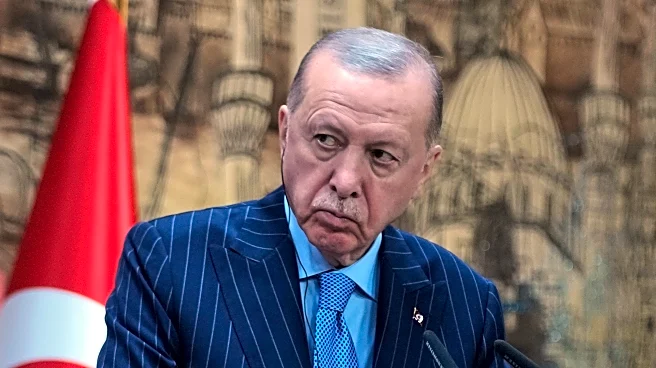Rapid Read • 8 min read
Hamas has managed to continue paying salaries to approximately 30,000 civil servants in Gaza despite the ongoing conflict and severe economic conditions. The payments are made through a secret cash-based system, with employees receiving a fraction of their pre-war salaries every 10 weeks. This system involves encrypted messages directing employees to specific locations to collect their wages, often under dangerous circumstances due to Israeli strikes targeting these distribution points. The financial strain is exacerbated by soaring inflation and severe food shortages, with flour prices reaching unprecedented highs. Despite these challenges, Hamas has reportedly stockpiled significant cash reserves prior to the conflict, enabling continued salary payments.
AD
The continuation of salary payments by Hamas highlights the group's resilience and ability to maintain governance structures despite military and economic pressures. This situation underscores the complex humanitarian crisis in Gaza, where aid distribution is reportedly influenced by political affiliations, leading to public resentment. The financial operations of Hamas, including reliance on external funding from Iran and Qatar, as well as local taxation, play a crucial role in sustaining its activities. The ongoing conflict and economic hardship have significant implications for the civilian population, affecting access to basic necessities and exacerbating tensions within the region.
The situation in Gaza remains precarious, with potential for further escalation as Israel continues to target Hamas's financial and administrative infrastructure. The international community may increase pressure on Hamas to ensure equitable distribution of aid and resources. Humanitarian organizations could face challenges in delivering aid effectively amidst accusations of diversion by Hamas. The ongoing conflict may prompt further diplomatic efforts to address the humanitarian needs of Gaza's population and seek a resolution to the crisis.
The ethical implications of aid distribution in conflict zones are significant, raising questions about accountability and transparency. The reliance on secretive financial systems by Hamas highlights the challenges faced by organizations operating in areas with limited banking infrastructure. The situation also reflects broader geopolitical dynamics, with external funding sources playing a pivotal role in sustaining conflict-related activities. Long-term solutions may require addressing underlying political and economic issues to ensure stability and improve living conditions for Gaza's residents.
AD
More Stories You Might Enjoy












